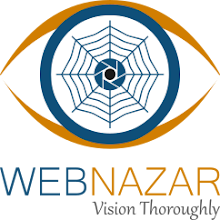Introduction
In recent years, artificial intelligence has made significant strides, particularly in the realm of natural language processing (NLP). AI language models have become powerful tools capable of understanding and generating human-like text. Among the most notable contenders in this space are OpenAI's ChatGPT, Google's Gemini, Anthropic's Claude, and Meta's LLaMA. In this article, we will delve into a detailed comparison of these AI giants, exploring their strengths, weaknesses, and ideal use cases.
1. ChatGPT by OpenAI
Overview: ChatGPT, developed by OpenAI, is one of the most popular AI language models. Built on the GPT architecture, it has undergone several iterations, with GPT-4 being the latest. It is widely used for generating human-like text, answering questions, and even creating content.
Key Features:
- Versatility: ChatGPT excels in a variety of tasks, from casual conversation to technical writing.
- Customizability: Users can fine-tune the model to meet specific needs.
- Community and Support: A large community and extensive documentation make it easier to integrate and use.
Pros:
- High-quality text generation.
- Strong performance in diverse applications.
- Extensive ecosystem with plugins and APIs.
Cons:
- Prone to generating plausible but incorrect or nonsensical answers.
- Requires significant computational resources.
Ideal For: Content creation, customer support, and educational tools.
2. Gemini by Google
Overview: Gemini is Google’s response to the growing demand for sophisticated AI models. While it is relatively new, Gemini has quickly gained attention for its integration with Google’s extensive ecosystem of products and services.
Key Features:
- Integration with Google Services: Seamlessly connects with Google Workspace, enhancing productivity tools like Google Docs and Gmail.
- Advanced Search Capabilities: Leverages Google's search engine capabilities to provide accurate and relevant information.
- Data Security: Strong focus on user data privacy and security, leveraging Google’s robust infrastructure.
Pros:
- High accuracy in information retrieval.
- Strong focus on privacy and security.
- Seamless integration with popular Google products.
Cons:
- Limited customization compared to other models.
- Accessibility might be restricted depending on the region.
Ideal For: Business productivity, research, and data analysis.
3. Claude by Anthropic
Overview: Claude, developed by Anthropic, is a newcomer focused on creating AI models that are safe, interpretable, and aligned with human values. Claude emphasizes ethical considerations, aiming to reduce biases and harmful outputs.
Key Features:
- Ethical AI: Prioritizes safety and ethical considerations in its responses.
- Transparency: Provides more transparent decision-making processes, which can be useful in sensitive applications.
- Bias Reduction: Advanced techniques to minimize biases in generated content.
Pros:
- Strong focus on ethical AI and safety.
- Reduces the risk of biased or harmful outputs.
- Transparent and interpretable results.
Cons:
- Performance can be conservative, sometimes limiting creativity.
- Newer in the market, so less community support compared to others.
Ideal For: Sensitive applications, ethical AI development, and industries requiring high levels of transparency.
4. LLaMA by Meta
Overview: LLaMA, developed by Meta (formerly Facebook), is an AI model designed to be more efficient and accessible. It’s geared towards democratizing AI by making powerful models available to a wider audience, including researchers and developers.
Key Features:
- Efficiency: Designed to run on less computational power, making it accessible to smaller organizations and individual developers.
- Open-Source: LLaMA is open-source, encouraging community contributions and widespread adoption.
- Scalability: Can be scaled down to run on smaller devices, offering flexibility in deployment.
Pros:
- Highly efficient and less resource-intensive.
- Open-source, allowing for greater community-driven innovation.
- Scalable for different use cases.
Cons:
- May not be as powerful as more resource-intensive models.
- Being open-source, quality can vary based on implementation.
Ideal For: Research, educational projects, and applications requiring scalable and efficient models.
Comparison Summary
When comparing ChatGPT, Gemini, Claude, and LLaMA, it's clear that each has its unique strengths. ChatGPT is a versatile and powerful generalist, making it ideal for a wide range of applications. Gemini shines in its integration with Google’s ecosystem, providing seamless productivity enhancements. Claude stands out for its ethical considerations, making it suitable for sensitive applications. Meanwhile, LLaMA is a highly efficient, scalable, and open-source option, ideal for researchers and developers.
Conclusion
The choice between ChatGPT, Gemini, Claude, and LLaMA depends largely on your specific needs and resources. If you’re looking for raw power and versatility, ChatGPT is a strong contender. For business applications and productivity, Gemini’s integration with Google services is unmatched. Claude is the go-to for ethical AI applications, while LLaMA offers efficiency and scalability for those with limited resources.
As AI continues to evolve, these models will undoubtedly see further developments and improvements, making it an exciting time for businesses, developers, and AI enthusiasts alike.














0 Comments